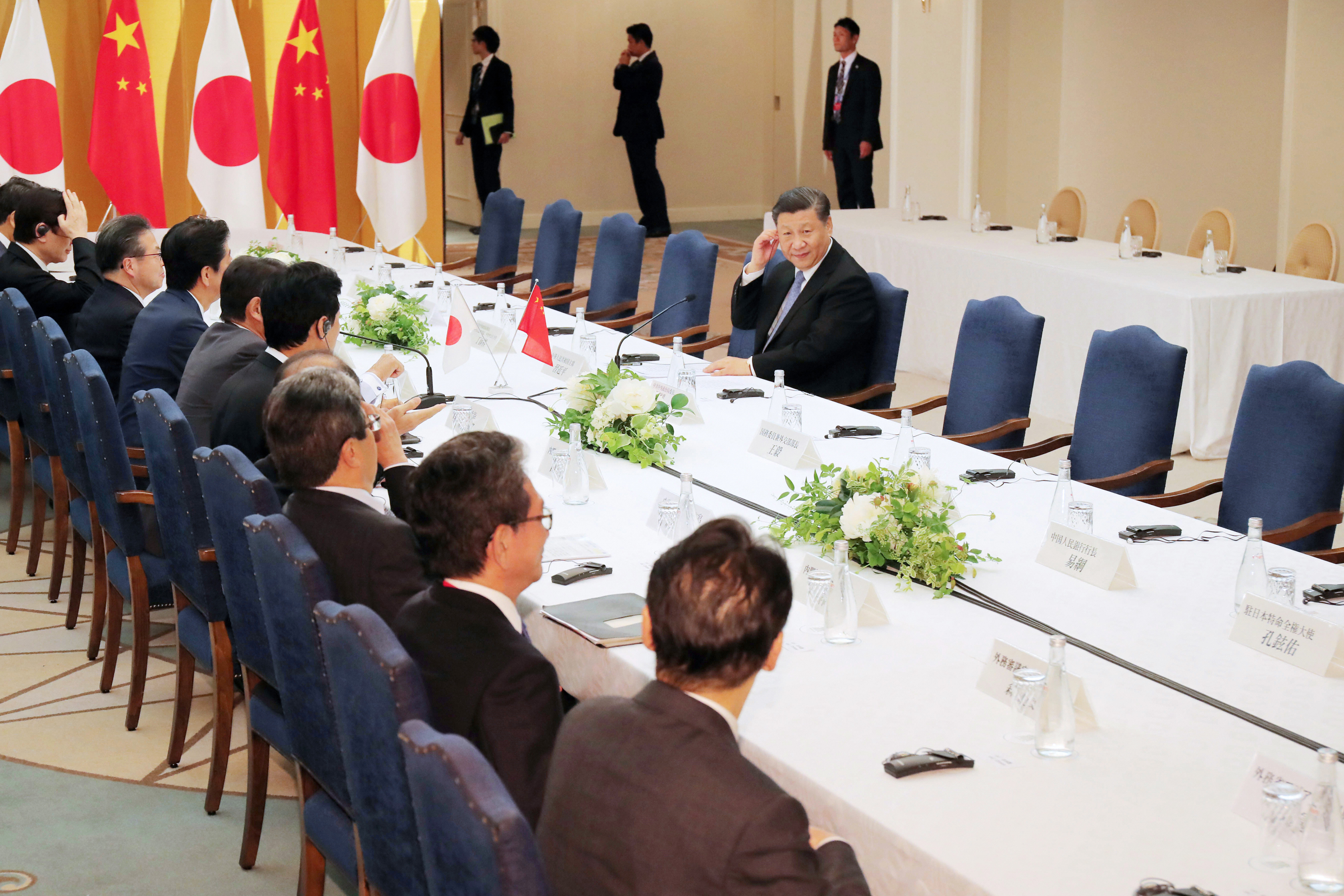The annual G20 summit kicked off on Friday, June 28, in Osaka, Japan.
Xi met Abe
Before the summit, Chinese President Xi Jinping had a working dinner with Japanese Prime Minister Abe Shinzo on Thursday, June 27.
Both leaders agreed to strengthen bilateral ties and continue to uphold "free trade" -- a remark that seemed to be directed at the U.S., The Japan Times reported.
However, before talks began, both Xi and the Japanese delegation waited for a few moments for the rest of the Chinese delegation to arrive, which makes for an interesting picture.
 Image via The Asahi Shimbun/Getty Images
Image via The Asahi Shimbun/Getty Images
You can see a clip of the proceedings here.
China's Vice Premier Liu He -- the point person who led the Chinese team in trade talks with Washington -- and Foreign Minister Wang Yi were included in the delegation.
Not the first time
This was not the first time Xi was left hanging by his own delegation in front of another state leader.
In 2017, at the Shanghai Cooperation Organisation summit held in Astana, Kazakhstan, Xi arrived at the meeting table before his delegation did.
This led Russian President Vladimir Putin to jokingly say that Xi is a "lone warrior".
Xi to meet with Trump too
Xi is scheduled to meet U.S. President Donald Trump on Saturday, June 29.
Previously, Trump had threatened even more tariffs on Chinese exports should Xi fail to meet with him.
However, he later toned down his rhetoric and said both he and Xi agreed during a phone call to extend their meeting at the G20 summit.
Most recently, he said on Wednesday, June 26, that he would slap further tariffs on China should the talks in Osaka fail.
But sources familiar with the situation told the South China Morning Post and Politico that both sides have agreed to a truce in their trade dispute ahead of their meeting.
Should an agreement be reached between both countries, it would end the month-long standoff that started when Trump slapped additional tariffs on Chinese exports, which China retaliated against with its own set of tariffs.
Tensions between China and the U.S. at the moment mean there are more reasons for Beijing to improve bilateral relations with Tokyo, which is also facing American pressure on trade.
Top image via The Asahi Shimbun/Getty Images
If you like what you read, follow us on Facebook, Instagram, Twitter and Telegram to get the latest updates.
